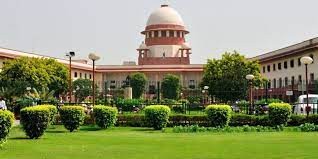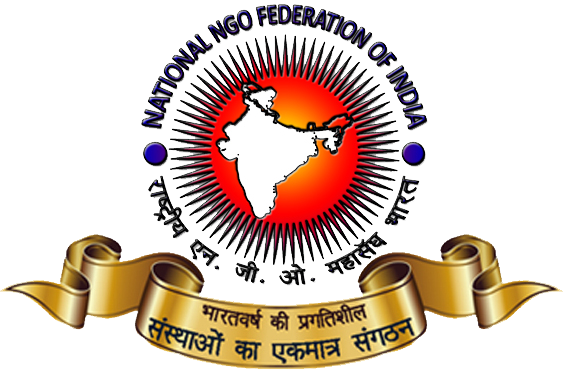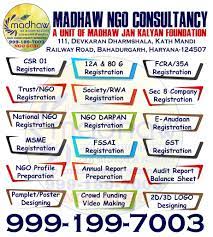NGO Registration
- NGO Registration
- Difference in Company, Society and Trust
- How to Start NGO – Form, Register and Run NGO
- Why to Register NGO
- How to run and manage NGO?
- Society Registration
- Society Registration Process and Procedure
- Name Change Process for Society
- How to Register NGO
- Societies Registration Act, 1860
- Public Charitable trust
- Registration Process of Public Charitable Trust
- After Registering the Public Charitable Trust
- Section 8 Non Profit Company Registration
NGO Resources
- NGO Resources
- NGO & Government of India
- NGO Partnership Registration
- Relations of NGOs with Business and Commerce
- Public Grievances Resolution related to Government
- Social Calendar
- NGO Management
- NGO Support
- What is NGO
- Voluntary Organisations and Volunteerism
- NGOs : Classification, Definitions, Typologies and Networks
- Understanding NGOs
- Can any Government Employee or Officer be the member of NGO?
- Income Exemption u/s 35AC Revoked
- Aims, Objectives & Programmes for NGO
NGO Funding & Grants
- NGO Funding
- Fundraising
- Funding and Grant Schemes
- Govt Schemes
- How to raise Funds for NGO
- Project Proposal Process
- Fundraising Ideas and Concepts
- Funding Agencies
- CSR Funding Empanelment by National CSR Hub
- CSR Funds through Corporate
- CSR Policy, Rules, Regulations and Guidelines of Government
- Government Funding Ministries
- International Funding Agencies
- Google for Nonprofits
- Fellowship
- CSR Funding
- Fund Raising
- Government Funding
- Grant Proposal for NGO Writing Preparation Process
- Project Proposals
Indian Non-Profits
- Andaman Nicobar
- Arunachal Pradesh
- Andhra Pradesh
- Assam
- Bihar
- Chandigarh
- Chhattisgarh
- Dadra Nagar Haveli
- Daman and Diu
- Delhi
- Goa
- Gujarat
- Haryana
- Himachal Pradesh
- Jammu Kashmir
- Jharkhand
- Ladakh
- Karnataka
- Kerala
- Lakshadweep
- Madhya Pradesh
- Maharashtra
- Manipur
- Meghalaya
- Mizoram
- Mumbai
- Nagaland
- Orissa
- Pondicherry
- Punjab
- Rajasthan
- Sikkim
- Tamil Nadu
- Telangana
- Tripura
- Uttar Pradesh
- Uttarakhand
- West Bengal
Strong mechanism is required to regulate NGOs : Supreme Court

Non Governmental Organisations (NGOs) are now working without any regulation and doing what they want. Even many NGOs are doing unfair practices. The Supreme Court bench led by CJI Thakur appointed senior advocate Rakesh Dwivedi and sought his views on how to fasten accountability on the NGOs when they are funded from the public exchequer.
Favouring a strong regime to regulate NGOs, the Supreme Court suggested that the Law Commission may look into the matter and make suitable recommendations to fill in the lacuna in legal provisions. A bench led by Chief Justice of India T S Thakur appointed senior advocate Rakesh Dwivedi as amicus curiae and sought his views on how to fasten accountability on the NGOs when they are funded from the public exchequer.
“They are getting money from all over the world… what is an NGO? Anyone can register a society and it becomes an NGO. There is no central legislation to ensure accountability… no legal brainwork done at the central level to control them. Unless some mechanism is put in place centrally, nothing can be done,” observed the bench.
It regretted that out of around 31 lakh NGOs, less than 10 per cent submitted details of their accounts with the registrar of societies and said that absence of a central law could be the reason for lack of regulatory regime. It asked PIL petitioner-advocate M L Sharma to hand over a copy of the petition and other relevant documents to Dwivedi, and added that if necessary, the court might refer the matter to the Law Commission for an in-depth study.
The first-ever exercise by the CBI to map registered NGOs had disclosed that India has at least 31 lakh NGOs — more than double the number of schools in the country, 250 times the number of government hospitals, one NGO for 400 people as against one policeman for 709 people. These statistics, indicating the relative status of education and healthcare infrastructure apart from policing, have come to light after the CBI collated information from all states and Union Territories to list NGOs registered under the Societies Registration Act.
The CBI was directed by the court to collect information about NGOs and inform whether these NGOs have filed balance sheets, including income-expenditure statements, to ascertain compliance with accountability norms.
(Source: http://indianexpress.com)



